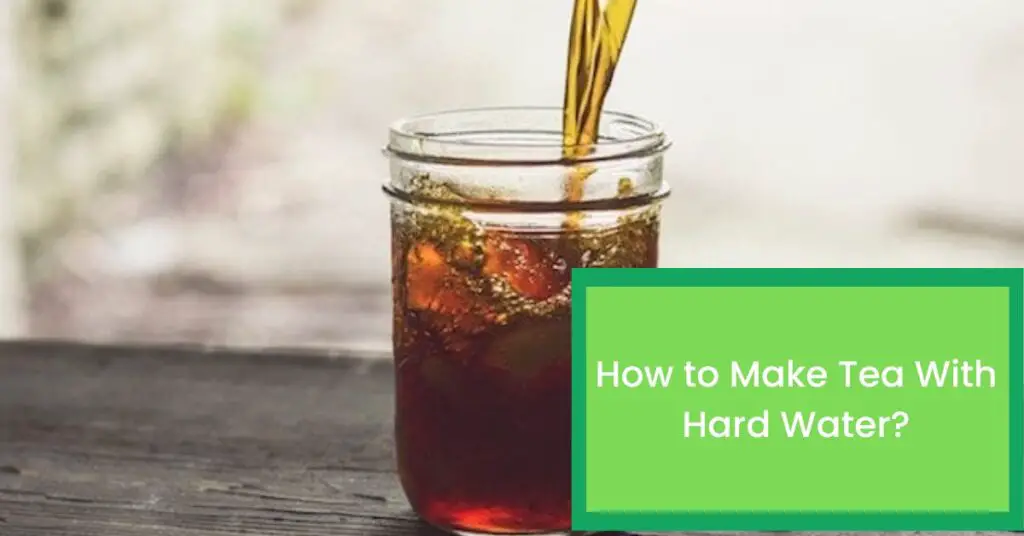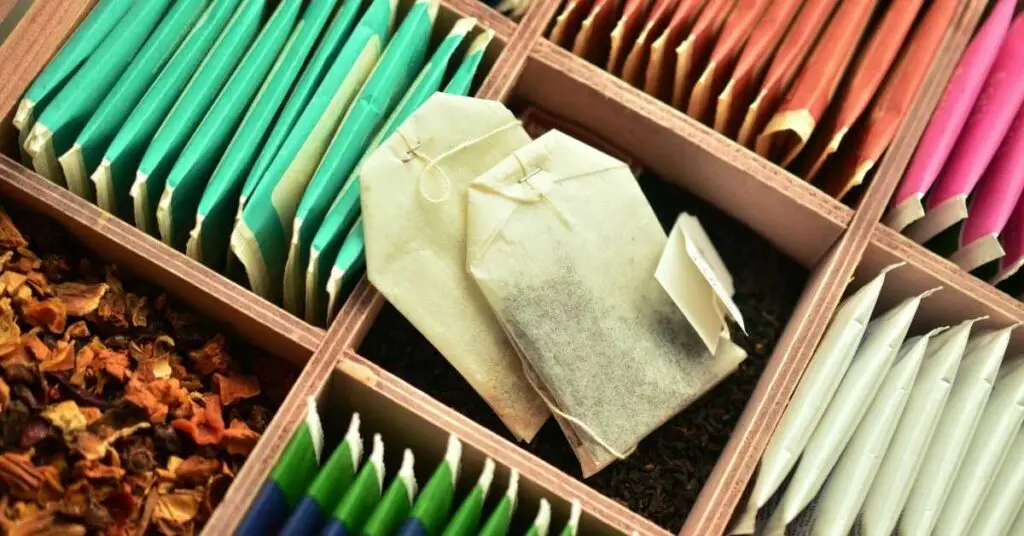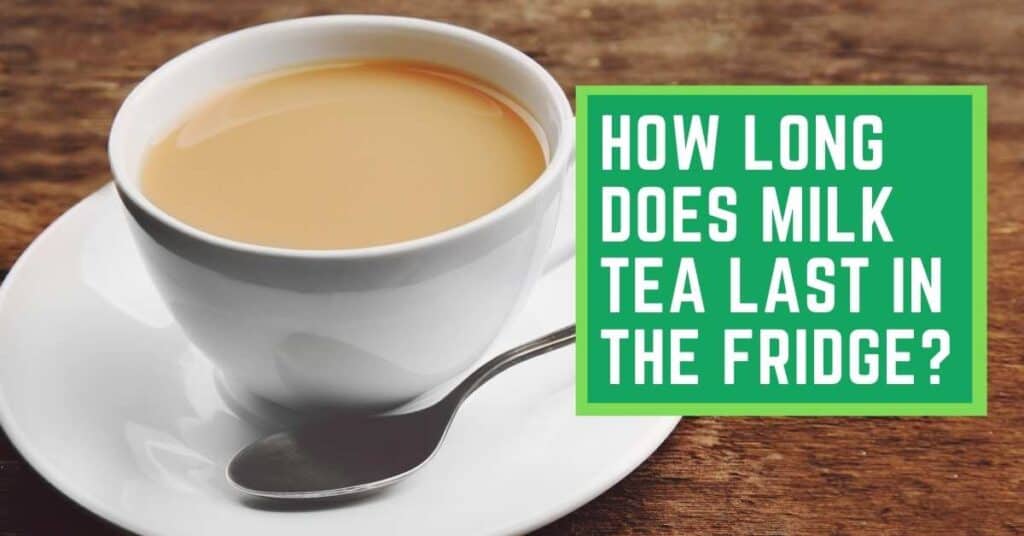There are many types of water available on the market, but not all of them are ideal for making tea. Regular water is the type of water that is free of impurities and will not alter the taste of your tea.
However, some people wonder if they can make tea using hard water. The answer is you can make tea using hard water to the usual method of making tea. However, the tea will come darker and thicker.
In this article, we will discuss how to make tea using hard water and the things you should know when making tea with hard water.
What is Hard Water?
Hard water is simply water that contains a high concentration of minerals, typically calcium and magnesium.
These minerals can come from a variety of sources, including leaching from rocks or deposits in the soil. Hard water can cause problems for both your health and the plumbing and appliances.
If you have hard water, you may notice that your dishes appear spotty after being washed or that your laundry doesn’t seem as bright and clean as it could be. You may also find that it takes longer to rinse the soap off your skin or hair.
There are a few ways to test for hard water, including using a water hardness test kit or contacting your local water utility. If you do have hard water, there are a number of ways to treat it, such as using a water softener or a descaling system.
Can You Make Tea With Hard Water?
Now that we know what hard water is, let’s answer the question, “Can you make tea with hard water?” The short answer is yes!
You can make tea with hard water. The tannins in the tea will bind with the calcium and magnesium in hard water to create a strong flavour. If you don’t like the taste of hard water, you can add a little bit of lemon juice to your tea to cut through the bitterness.
Tips For Making The Perfect Cup of Tea With Hard Water
Whether you’re using boiled water from the kettle or cold water from the tap, hard water can be used to make tea. However, there are a few simple tips you can follow to ensure that your cup of tea comes out tasting perfect, regardless of the type of water you’re using.
If you’re using boiled water, be sure to let it cool for a minute or two before adding it to your tea. This will help to prevent the tannins in the tea from becoming astringent.
When using cold water, be sure to use filtered or distilled water. This will help to remove any impurities that can cause your tea to taste bitter.
Brewing time is also important when making tea with hard water. Be sure to brew for a little more than the recommended amount of time indicated on the tea package. This will help to ensure that your tea comes out tasting its best.
Finally, be sure to add a little bit of milk or cream to your tea. This will help to round out the flavor and make your tea taste smoother.
By following these simple tips, you can ensure that your cup of tea will come out tasting perfect, no matter what type of water you’re using.
What is it Taste Like Tea Made With Hard Water?
It actually depends on how hard your water is. If you have very hard water, then you might notice a difference in the taste of your tea.
Generally, hard water tea may taste a bit bitter or “off” compared to tea made with softer water. This is because the minerals in hard water can interfere with the flavour of the tea. If you’re not used to it, hard water tea can take some getting used to.
However, if you have only slightly hard water, then you probably won’t notice any difference in the taste of your tea.
The Hidden Risk of Drinking Tea Made With Hard Water
We all know that tea is good for our health.
It is packed with antioxidants and has many benefits for our bodies. However, did you know that the water you use to make your tea can also have an effect on your health?
Tap water typically contains minerals such as calcium and magnesium, which can make it hard. When water is heated, these minerals can form deposits on your kettle or teapot. If you drink tea made with hard water, you may be consuming these deposits.
These deposits can build up in your body and lead to health problems such as kidney stones or gallstones. Hard water can also cause skin irritation and dryness.
If you live in an area with hard water, it is important to filter your water before using it to make tea. You can also use bottled spring water or distilled water.
By doing this, you can enjoy the health benefits of tea without the risk of drinking hard water.
Common Problems to Face When Making Tea With Hard Water
Hard water can cause problems when making tea, resulting in a weaker flavour and less effective brewing. Here are some common problems you may face when making tea with hard water and how to solve them.
1. The tea leaves won’t fully infuse.
This is because the minerals in hard water can prevent the tea leaves from fully expanding and releasing their flavour. To solve this problem, try using filtered or spring water instead of hard water.
2. The tea tastes weak or bland.
This is because the minerals in hard water can interfere with the taste of the tea. To solve this problem, try using filtered or spring water instead of hard water.
Overall, these are the two major problems you’ll face when making tea with hard water. By using filtered or spring water instead, you can avoid these problems and make a great cup of tea.
Frequently Asked Questions Related to Making Tea With Hard Water
1. What kind of water is best for tea?
Filtered tap water is the best type of water to use for tea, as it contains the right level of minerals and pH to bring out the flavour of the tea. If you don’t have filtered tap water available, distilled or purified water is also good option.
2. Will hard water make tea cloudy?
Yes, the higher levels of calcium have been shown to make the tea cloudy upon cooling. This is because the calcium carbonate reacts with the polyphenols in the tea to form an insoluble precipitate.
3. Does hard water affect taste?
It’s actually soft water that may not be so tasty. Hard water has a higher mineral content, which can enhance flavors in food.
This is why many people believe that hard water tastes better than soft water—because the added minerals give the water a more distinct flavor.











